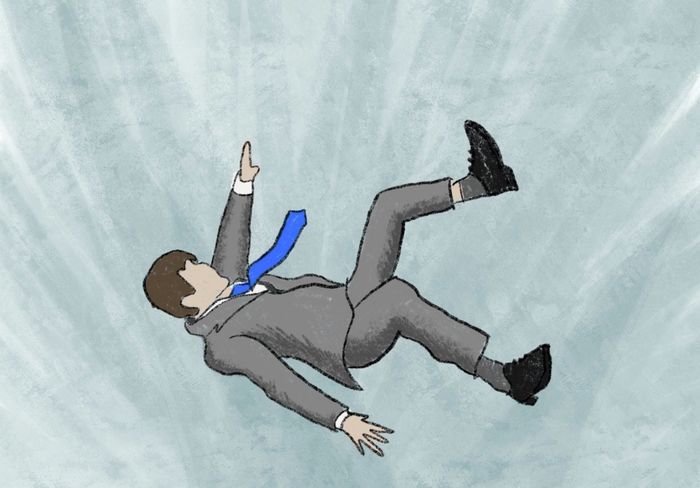Whilst studying History, I also lived through it
Issac Fung looks back at the peaks and troughs of his degree, including the experience of studying amidst the protests in Hong Kong

People back home are often unimpressed when I tell them I study history. Well-meaning relatives have fretted over my prospects (“So what are you going to do after you graduate?”), questioned the value of a history degree (“I love history, but it’s quite wishy-washy, isn’t it?”), and advised me to switch to a more sensible subject (“Is it really too late to transfer to law?”). For a long time—although I seldom admitted it—I harboured similar doubts. As pro-democracy protests erupted in Hong Kong over 2019-2020, my history degree seemed unimportant, even trivial, compared to the momentous events which were shaping the world around me.
Indeed, my three years of studying history were far from an uninterrupted romance. Like most of my friends, I joined too many societies, enjoyed too many late nights out, and spent too much time on politics. When COVID forced me away from Cambridge for four consecutive terms, I spent my days training Brazilian Jiu-Jitsu and neglected my degree. The demands of my degree were such that it was impossible to do everything at once. Something had to give, and usually, it was my degree which took the hit.
“The artist within me rebelled, but the work had to be done”
My doubts were compounded by the fact that I was deeply dissatisfied with my course during the first two years. When I first started my degree, I thought I would read a lot of work by ‘classic’ historians, and that I would emulate them by writing elegant and pithy prose for my weekly essay. As it turned out, the task of writing essays was more akin to being a battlefield surgeon hacking away at a soldier’s gangrenous limbs. Every week, I would compress pages of notes into a single paragraph, stitch together disjointed clauses with semicolon after semicolon, and blast beautiful sentences into rubble to make room for petty historiographical squabbles. I recognised the importance of delivering tightly argued essays of historical analysis, but I also had to sacrifice literary eloquence in favour of workmanlike prose to meet deadlines. The artist within me rebelled, but the work had to be done.
My own historical interests were also rather traditional, and so I felt left behind by the academic vanguard (which showed much less of an interest in political and diplomatic history). At the tender age of 17, I already felt like an anachronism; despite ample help from my supervisors, I struggled. One friend half-joked that I would have been much happier if I were a historian in Peterhouse during the 1980s (as they were notoriously conservative). Another was more direct, telling me that my academic interests aligned with historians who were ‘dead, white, and male’.
“I witnessed the police chasing pro-democracy protesters down a crowded street”
It was only in third year that I no longer felt alienated by my degree. Specialising in the topics I most enjoyed, I finally found myself back on terra firma. I pored over Thucydides’ History for his insights on war and human nature; fought off Covid while reading Carl Schmitt’s inhumanly brilliant case for totalitarianism, and studied the great constitutional clash between Sir Edward Coke and James I over the royal prerogative. I also realised that the first two years, exhausting as they were, was what gave me the foundation I needed to express myself on the topics I most cared about. As the Roman general, Sulla once remarked: ‘One must learn to pull an oar before taking the helm’.
My newfound perspective on my studies also made me re-evaluate everything I experienced over the course of my university degree. One incident stands out in particular. During my second year, when I was trapped in Hong Kong due to Covid, I witnessed the police chasing pro-democracy protesters down a crowded street. Mere minutes later, I was sitting in a Starbucks on a Zoom meeting with a supervisor, discussing the historical context behind the Bank of England’s founding. Thinking back to this, I now realise why a history degree was so valuable. On one hand, history provides solace from the present because its subject matter is so distant and remote. On the other, it is a record of great triumphs, great emotions, and great upheavals, and so is intimately connected with the crises of today. Even as the police outside screamed at a terrified family of four, I nodded along to my supervisor’s comments, thanking the stars that I chose to study history and not any other subject.
 Comment / Cambridge students are too opinionated 21 April 2025
Comment / Cambridge students are too opinionated 21 April 2025 News / Candidates clash over Chancellorship25 April 2025
News / Candidates clash over Chancellorship25 April 2025 Comment / Does the AI revolution render coursework obsolete?23 April 2025
Comment / Does the AI revolution render coursework obsolete?23 April 2025 Comment / Cambridge’s tourism risks commodifying students18 April 2025
Comment / Cambridge’s tourism risks commodifying students18 April 2025 News / Cambridge professor paid over $1 million for FBI intel since 199125 April 2025
News / Cambridge professor paid over $1 million for FBI intel since 199125 April 2025





